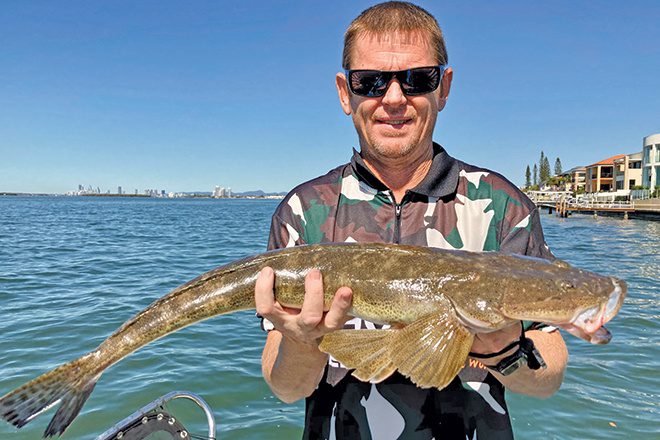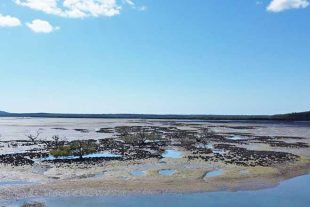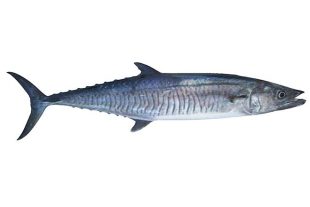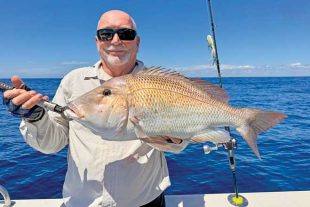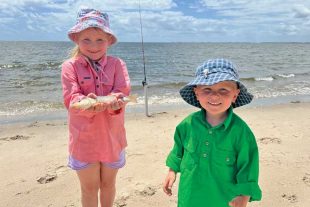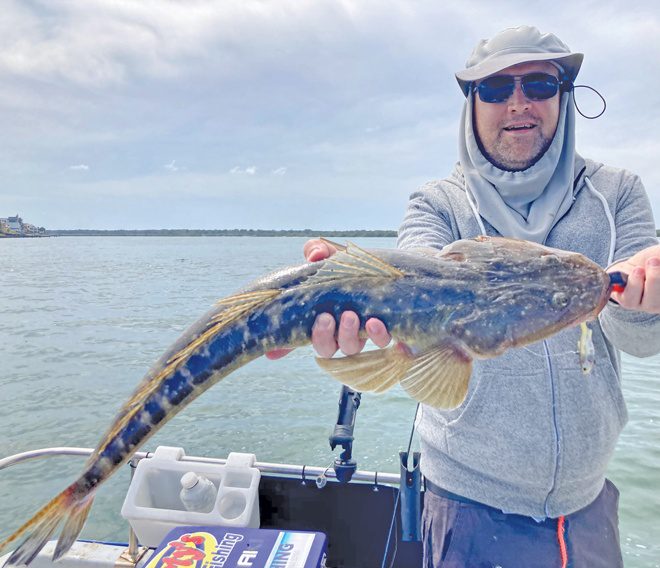
Hi everyone, this month we can expect top fishing for dusky flathead and sand whiting in the Gold Coast Broadwater and the rivers that flow into it. September has already shown what a great time of year it is for these fish, with both flathead and whiting venturing downstream to commence their multiple spawning events over coming months. When flathead are feeding aggressively to condition themselves for spawning, they will take most any bait or lure offered to them. They are great fun to catch and delicious to eat. techniques flathead
We prefer to only keep a few to eat and release the majority to continue breeding. There are a few techniques and lures that will make your flathead catch rates consistent. I’ll share several that work well on our daily estuary fishing charters – and occasionally nab nice by-catch such as squid, flounder, tailor, whiting and tuskfish. techniques flathead
You can of course cast and hop soft plastic lures over shallow sand flats for flathead and along the edges on run-out tide, but we mostly find success by fishing deeper water with good tidal flow. Flathead will feed well when the tide is running, as they wait on the bottom for baitfish to come along with the current then ambush them at point-blank range. Channels between banks that act as food funnels are prime examples, as are riverbanks, and man-made structure such as breakwalls. By keeping your lures bouncing along the bottom with tiny and constant twitches of the rod tip, you’re finding fish and making them snap at your offering. techniques flathead
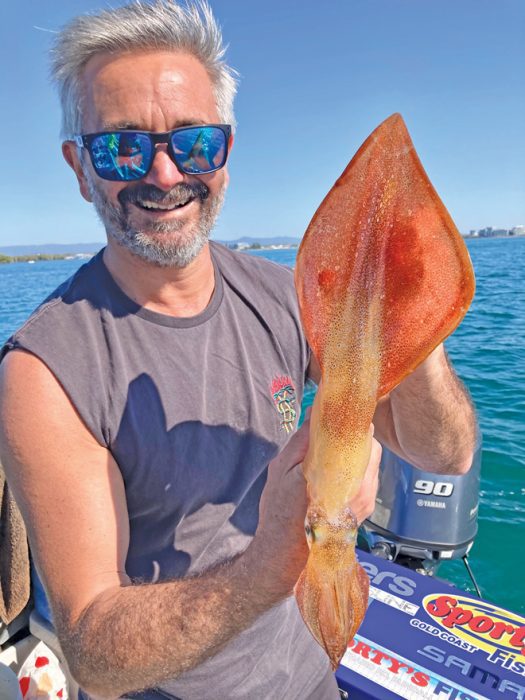
A lot of small fish are moving around at this time of year including whitebait, and after catching predators such as flathead and tailor you’ll often see them regurgitate these baitfish. The old adage ‘match the hatch’ is never more relevant than at this time.
Our favourite lure to use for this reason is the Samaki Vibelicious 70mm Fork Tail in Whitebait colour. It’s remarkable how well this lure imitates natural prey and the added advantage is that it weighs 10g, which helps it stay on the bottom when drifting and tea-bagging.
The Vibelicious 70mm Fork Tails have a clean vigorous vibration, which makes noise through the water and gets the attention of fish before they even see the lure. The Samakis have a great range of colours to mix things up depending on the condition of the water and sky. Some of our go-to colours are Whitebait, Pearl Shrimp, Ginger UV Squid, Ghost Bait, Lime Crush and Chartreuse UV Head.
You’ll find all the colours will work at different times – keep experimenting on the day to crack the code. To use them, all that’s needed is a light estuary setup. For soft vibes, my favourite rod is a one-piece Atomic Arrowz 6-12lb 7’ rod (code AAS 70L) paired with a Shimano Sedona 2500 size reel, spooled with Tasline Elite White PE 0.6 braid and 1m of 10lb Yamatoyo fluorocarbon leader tied to the braid with an improved Albright knot.
 Bush ‘n Beach Fishing Magazine Location reports & tips for fishing, boating, camping, kayaking, 4WDing in Queensland and Northern NSW
Bush ‘n Beach Fishing Magazine Location reports & tips for fishing, boating, camping, kayaking, 4WDing in Queensland and Northern NSW

